Affiliate disclosure: This post may contain affiliate links. Please see our Privacy Policy.
Chickweed (Stellaria media) is one of the first edible greens to pop up in spring, often emerging while snow still lingers on the ground. Its delicate stems and tender leaves make it a favorite early snack for both chickens and foragers alike.
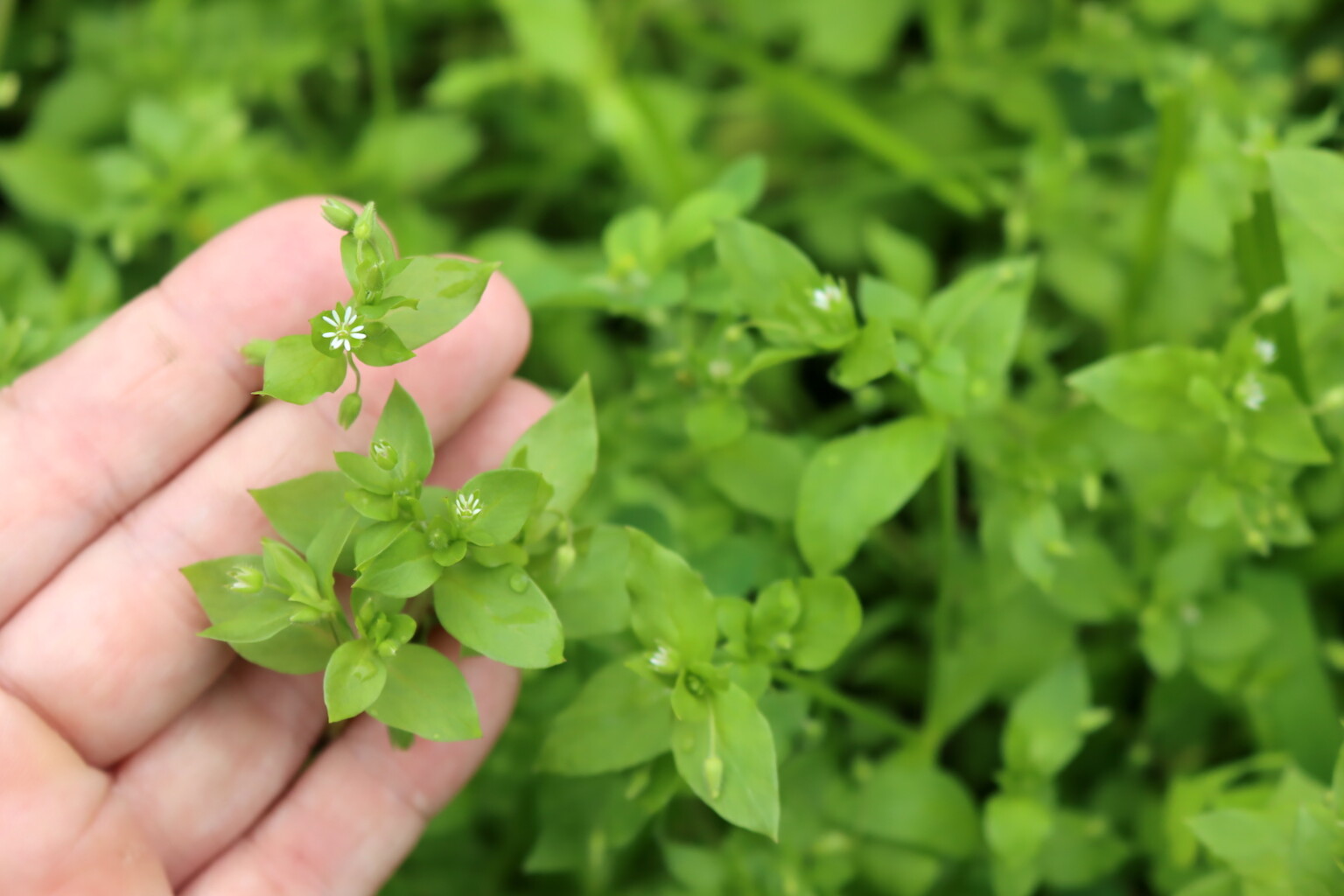
Sometimes called chickenwort or winterweed, chickweed is both edible and medicinal—a gentle and nutritious herb that grows abundantly in gardens, lawns, and woodland edges. It’s one of the earliest edible garden weeds to sprout each year.
In our family, chickweed marks the real beginning of spring, and kicks off our spring foraging season before the first dandelion flowers. The kids love nibbling it straight from the garden, and we often use it in playful tea parties with tiny cups of chickweed tea.
When we’ve eaten our fill, we make chickweed pesto for the freezer and start infusing the herb in oil to make little tins of chickweed salve.
Once our baskets are full, the rest goes to the ducks, chickens, and geese, who are just as happy to see fresh greens after a long winter. It’s a shared seasonal ritual, and chickweed never goes to waste.
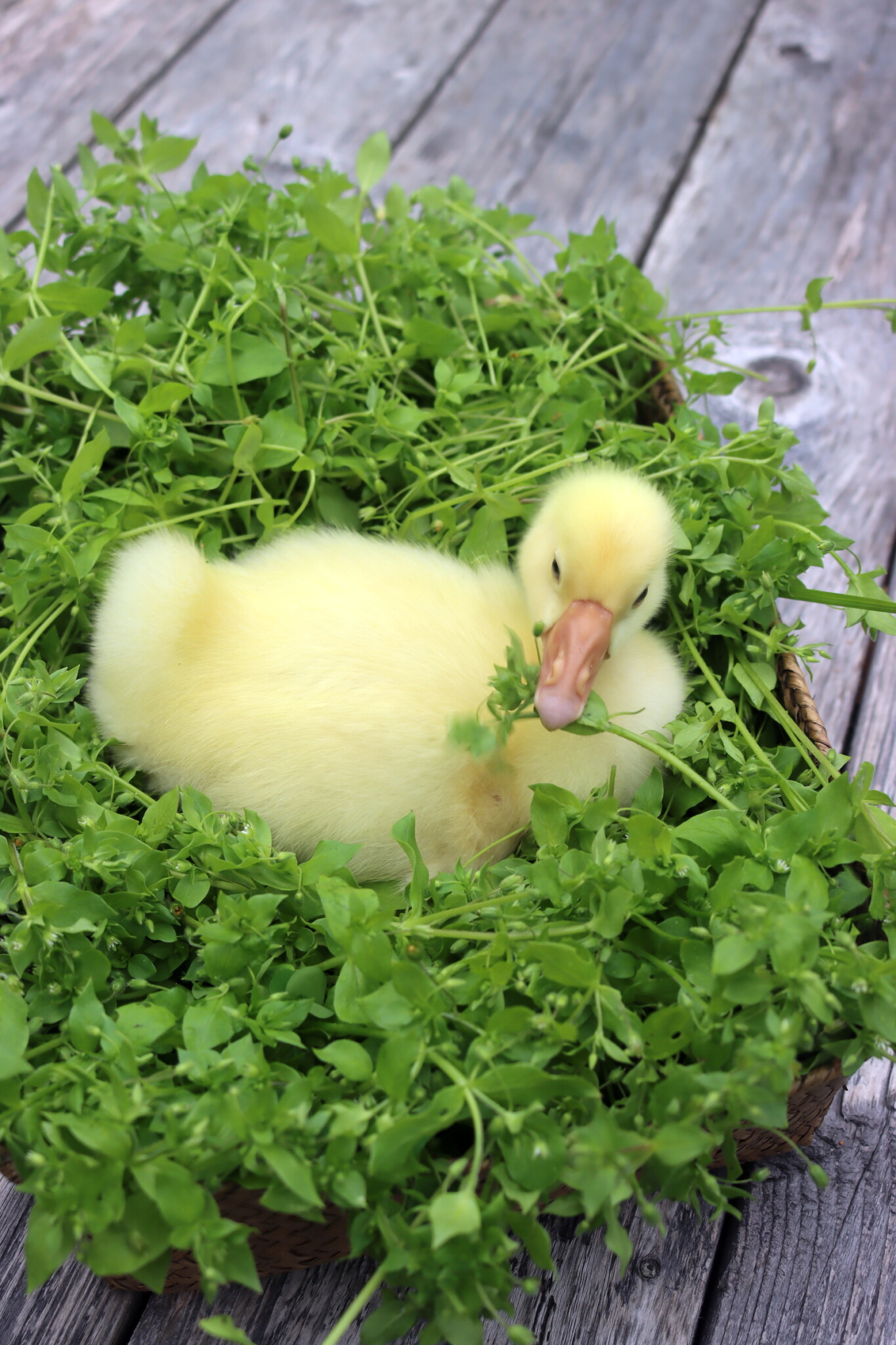
What is Chickweed?
Chickweed (Stellaria media) is a cool-season annual herb that thrives in moist, partly shaded areas. It grows throughout much of North America and is often considered a weed due to its prolific growth and ability to form dense mats.
Despite its small size and delicate appearance, chickweed is hardy, even surviving under light snow in early spring. It spreads quickly by seed and can grow year-round in milder climates.
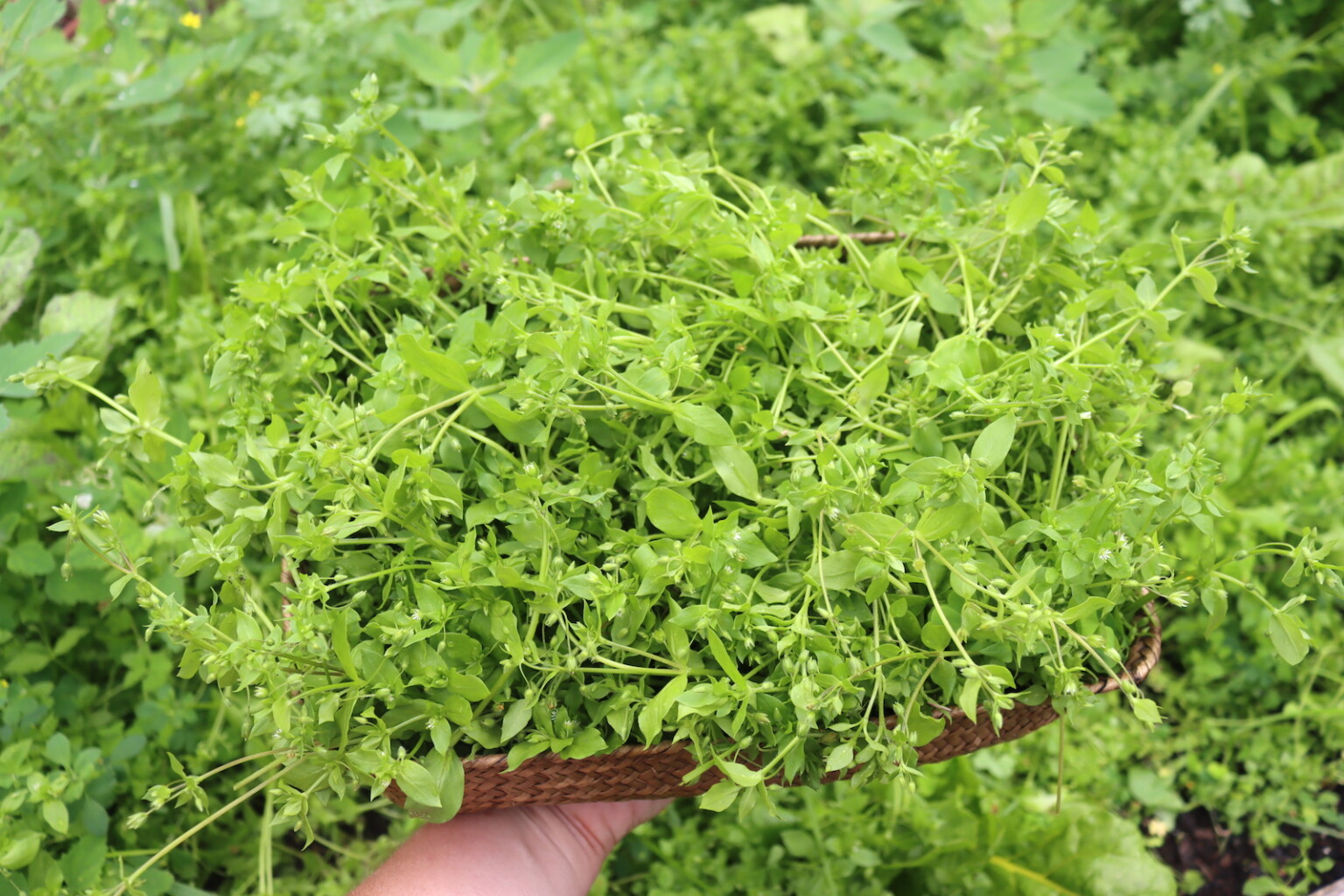
Is Chickweed Edible?
Yes, chickweed is entirely edible and incredibly mild in flavor. The stems, leaves, and flowers can all be eaten raw or cooked. Its crisp, juicy stems and tender leaves make it perfect for salads, sandwiches, and pestos.
Because it’s so gentle in flavor, chickweed is ideal for introducing wild greens to children or those new to foraging. It wilts quickly after harvest, so it’s best eaten fresh or blended into recipes soon after picking.
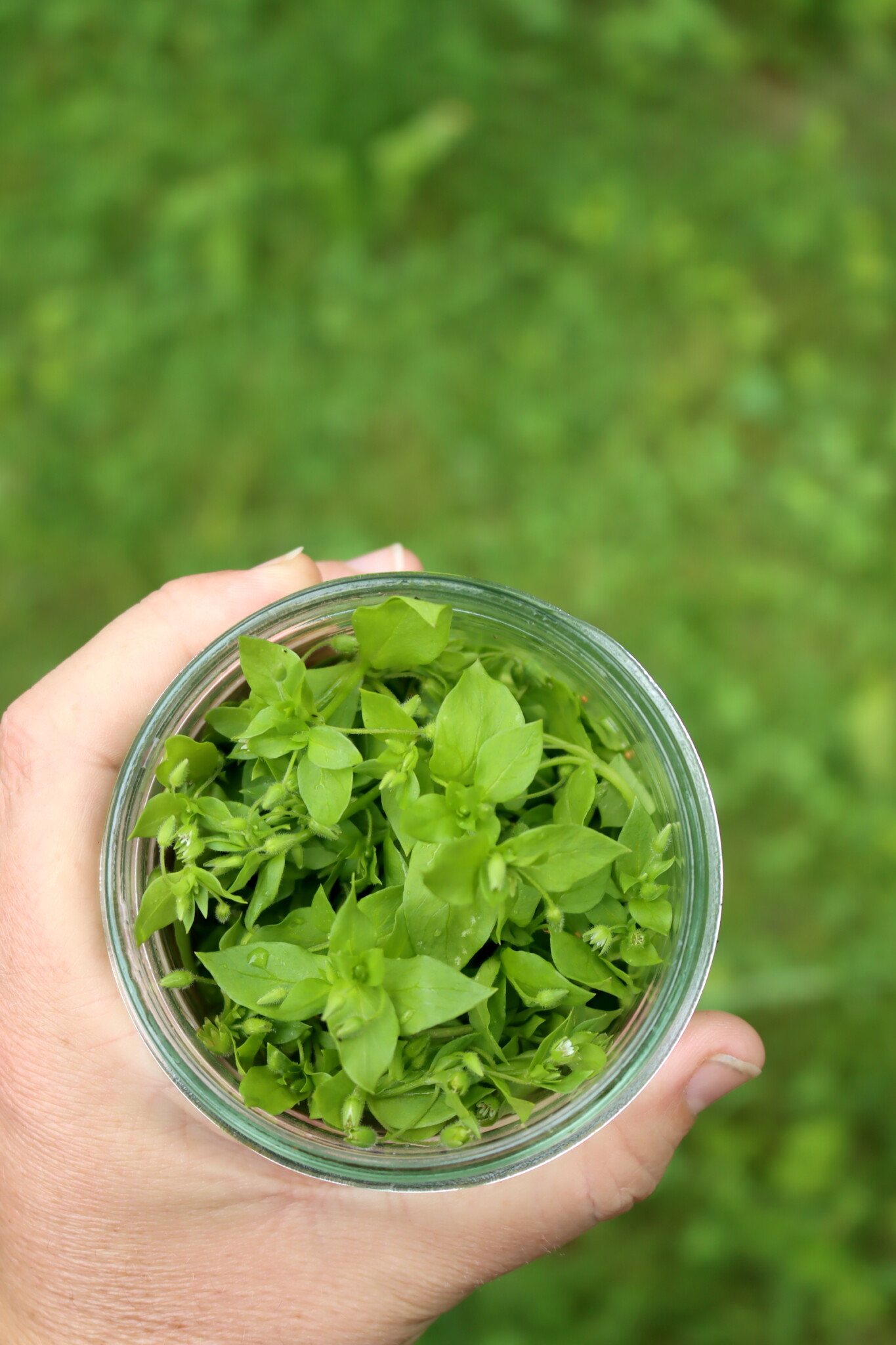
Chickweed Medicinal Benefits
Chickweed has long been used as a gentle remedy for skin irritation, digestive issues, and inflammation. Topically, it’s applied to treat itchy, dry, or irritated skin and is often found in herbal salves and creams. Internally, it acts as a mild diuretic and has traditionally been used for soothing joint pain, arthritis, and urinary tract discomfort.
Chickweed tea is a popular spring tonic, known for its vitamin C content and digestive properties. Though often promoted for weight loss, any benefit is likely due to its laxative effect rather than appetite suppression.
Chickweed tinctures are sometimes used during menopause for hot flashes, and its cooling properties support general inflammatory relief.
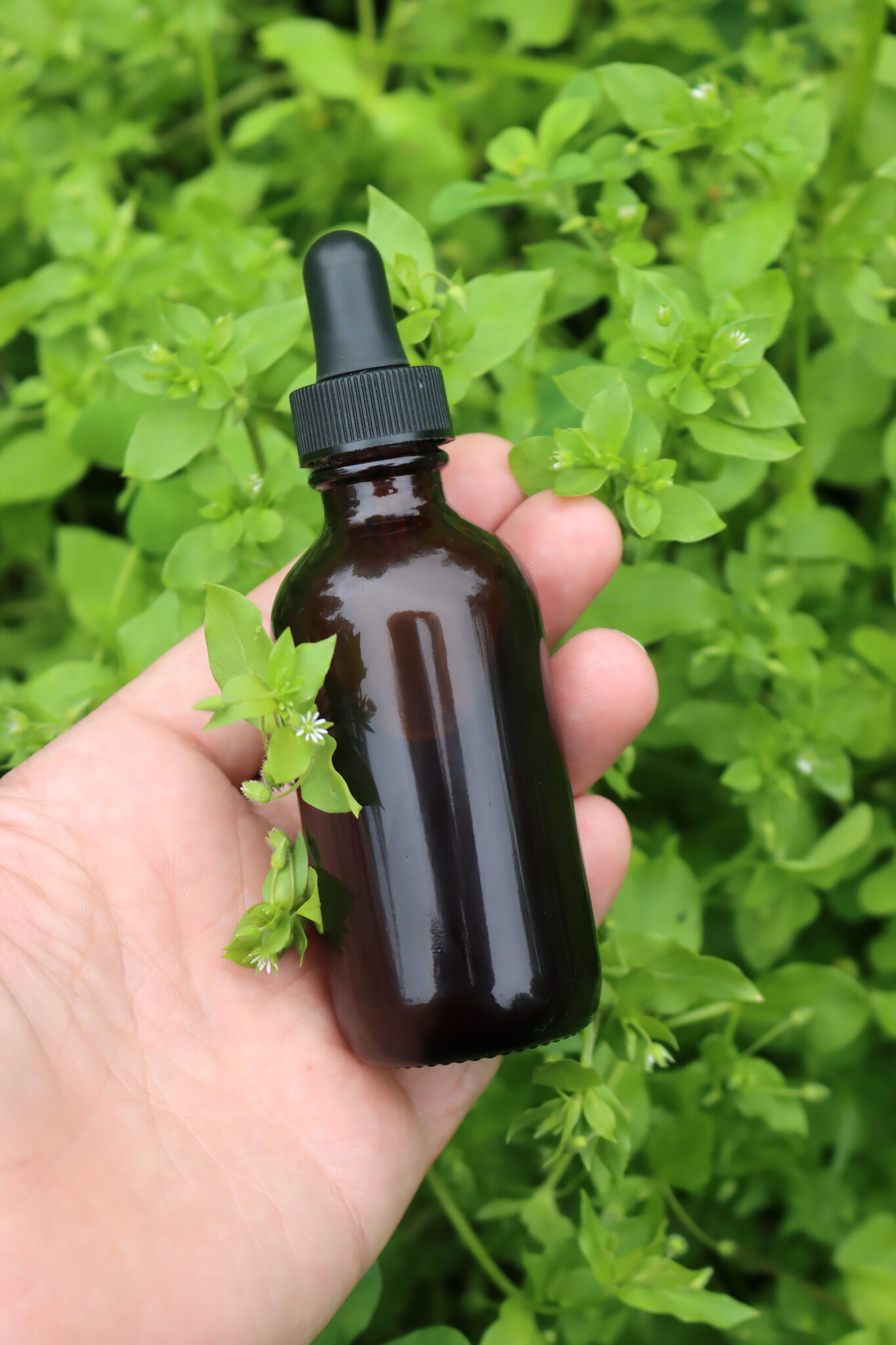
Where to Find Chickweed
Chickweed grows nearly everywhere—in gardens, lawns, fields, pastures, waste areas, and even shady parts of the forest. It thrives in moist, nutrient-rich soils and spreads rapidly, often covering entire garden beds or patches of bare earth.
Because it grows as a tangled mat of small plants, it can be easy to spot once you’re familiar with it.
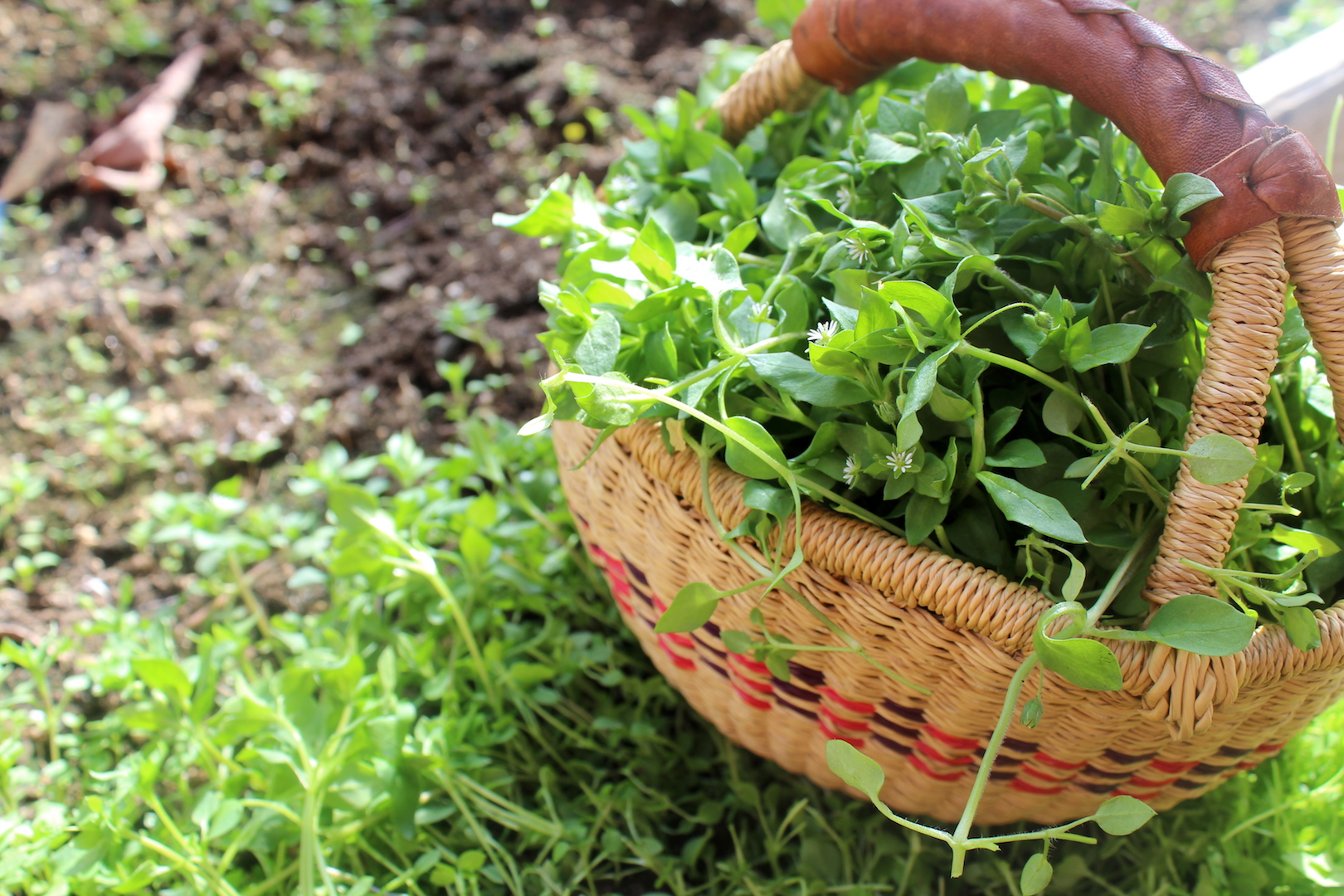
When to Find Chickweed
In most regions, chickweed first appears in early spring, often as soon as the snow begins to melt. In warmer zones, it may grow year-round, while in colder areas it flourishes from March through May and again in fall.
You can harvest chickweed as soon as it emerges and continue picking the young growth throughout its life cycle, ideally before flowering for best flavor.

Identifying Chickweed
Chickweed grows in dense, sprawling mats of low greenery. Each individual plant is relatively short (6 to 10 inches long), but they tangle together to create thick patches.
Leaves
Leaves are oval with pointed tips and grow in opposite pairs, alternating direction along the stem (north/south, then east/west). They may be lightly hairy, especially when young.
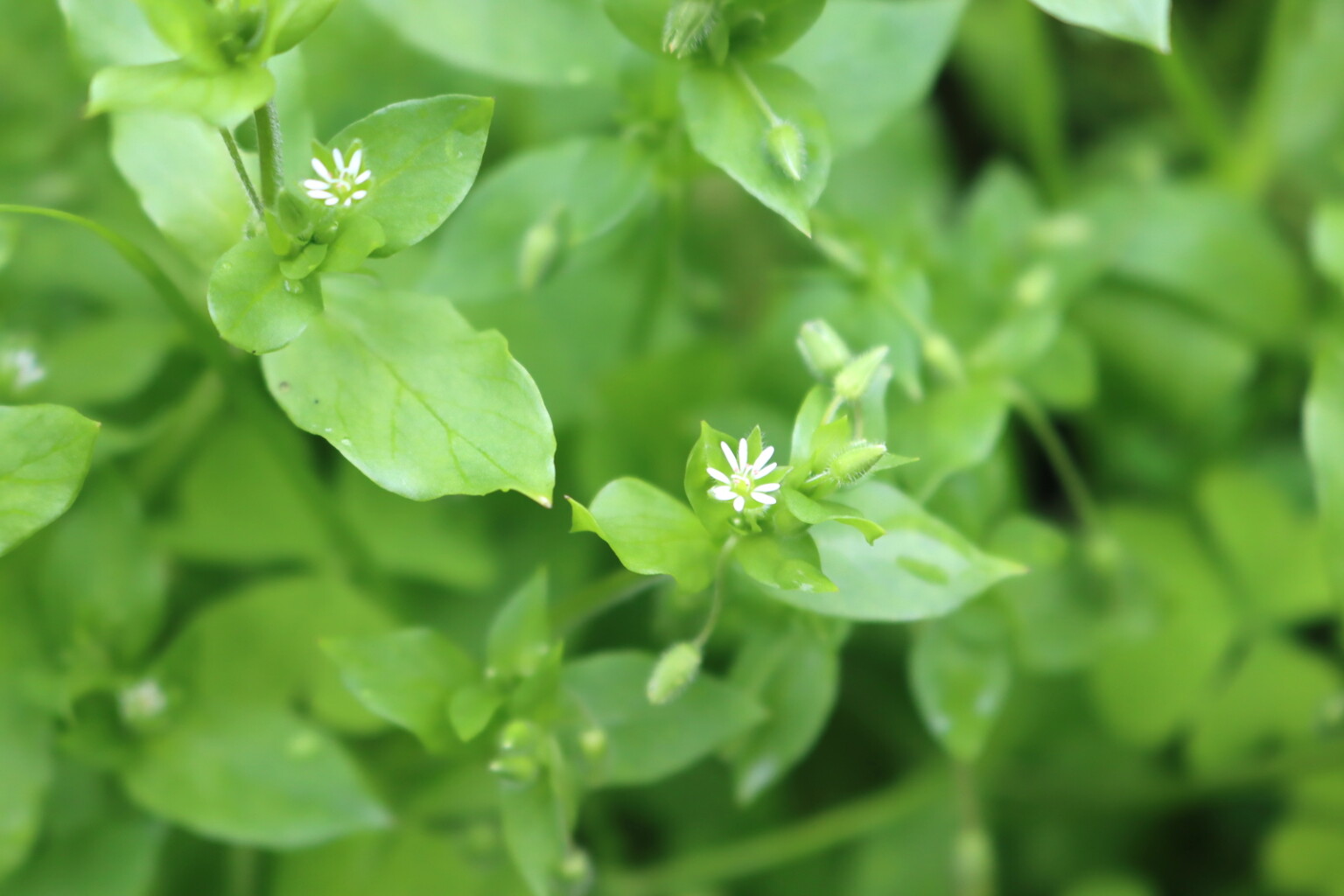
Stems
The stems are slender, green, and fragile, with a single line of hairs running up one side. If you break a stem, it does not exude milky sap (a key identification feature).
Flowers
Tiny white flowers appear in early spring. They have five deeply divided petals, making them look like they have ten. The Latin name Stellaria refers to the flower’s star-like appearance.
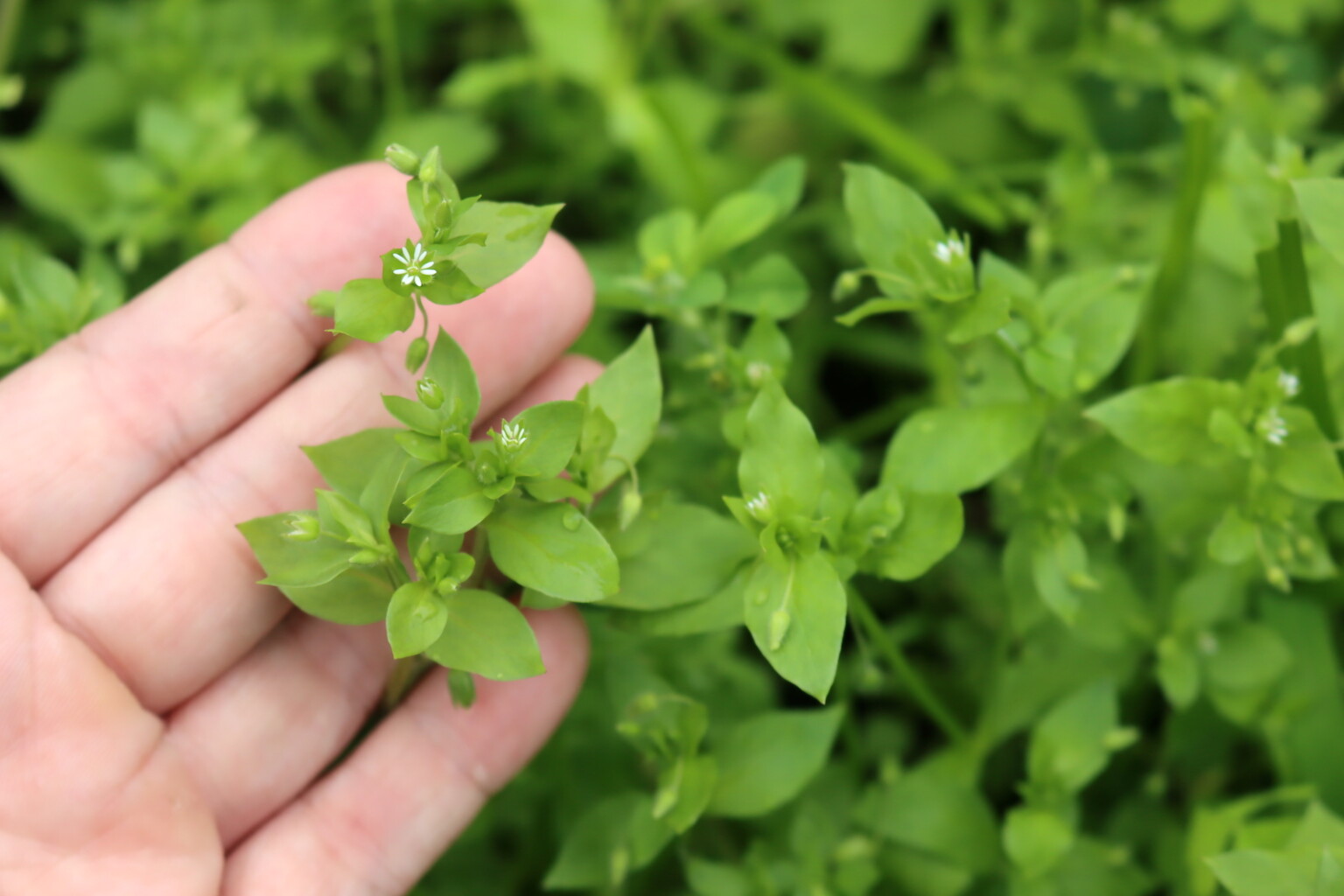
Seeds
Chickweed produces small, seeds held inside tiny capsule-like pods that follow flowering. Each flower can produce a surprising number of seeds, and chickweed spreads rapidly through this abundant seed production.
The seed capsules open at the top when mature, releasing seeds that scatter easily with wind or animal movement.
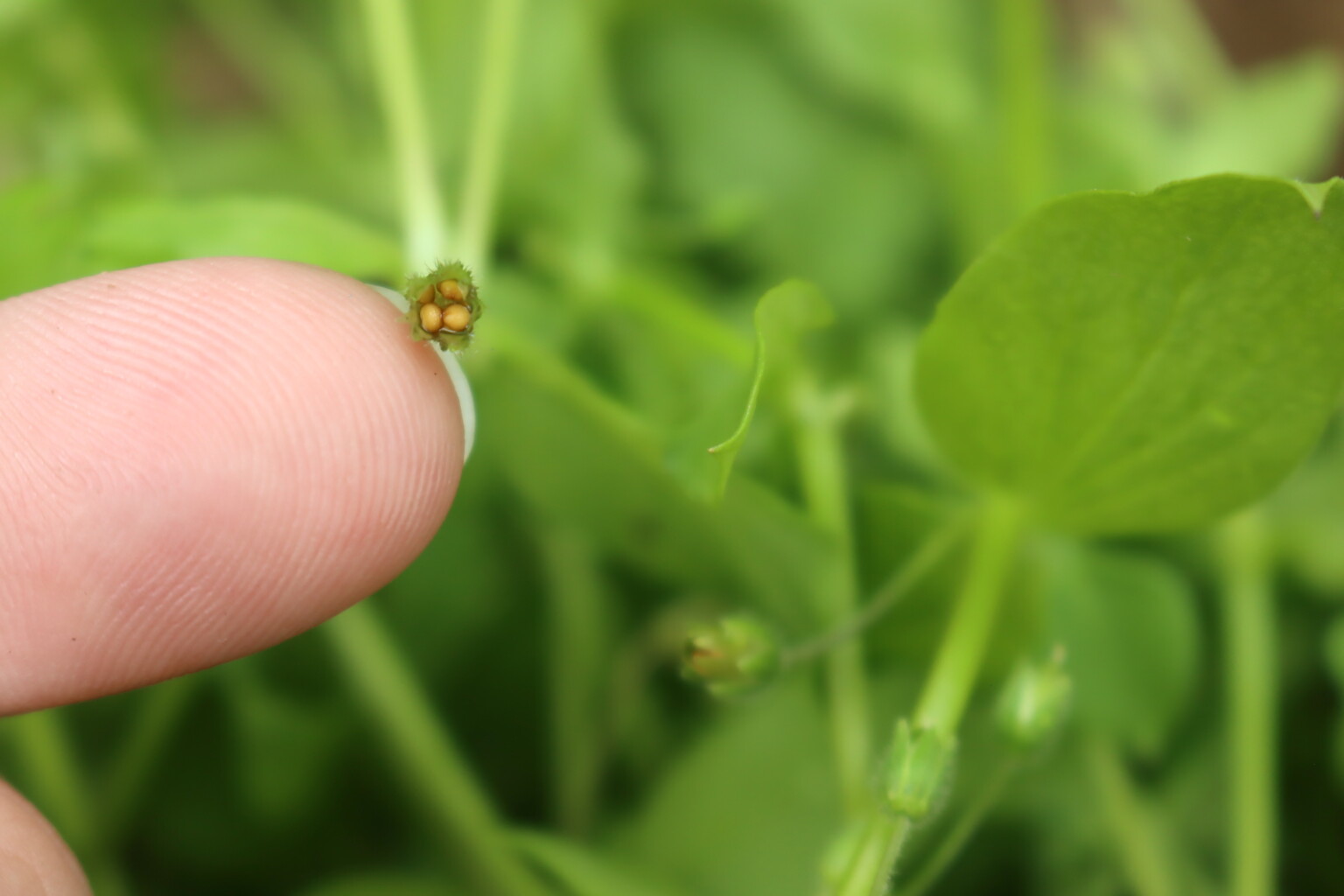
These seeds are edible but extremely small and difficult to harvest in meaningful quantities. However, they are a favored food source for wild birds and chickens, and they’re one of the reasons chickweed is so valuable as early poultry forage.
The seeds also ensure that once chickweed takes hold in your garden, it will likely return year after year with little encouragement.
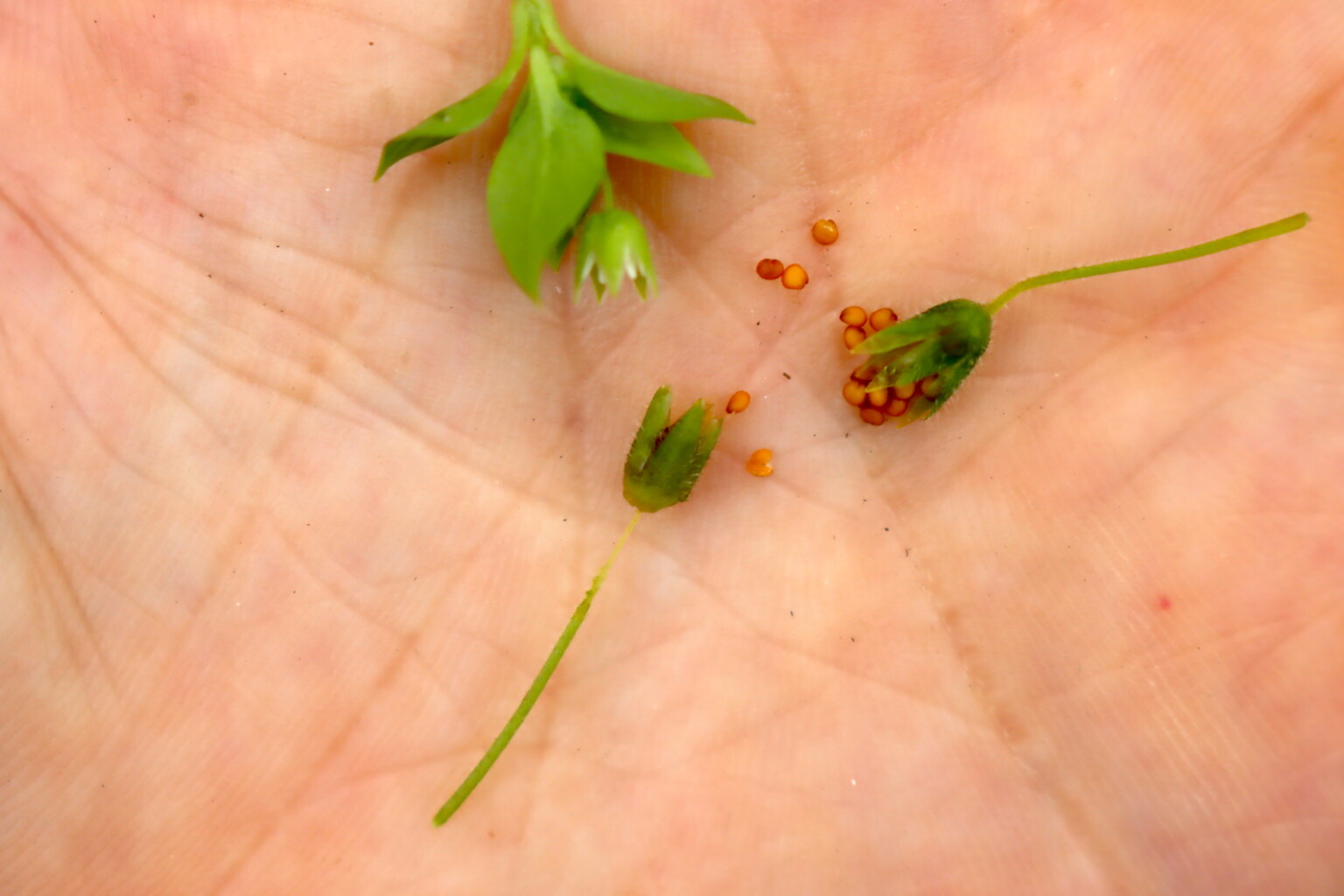
Chickweed Look-Alikes
Chickweed has a few look alikes, both toxic and edible, but they’re all easy to distinguish.
- Scarlet Pimpernel (Anagallis arvensis): This toxic look-alike has similar foliage but orange-red flowers and lacks the characteristic line of hairs on the stem.
- Spurge (Euphorbia spp.): Spurge also grows low to the ground, but its stems release milky sap when broken.
- Mouse-Ear Chickweed (Cerastium spp.): A close relative, this plant has densely hairy leaves and stems, distinguishing it from the smoother Stellaria media. Mouse ear chickweed is also edible and has many of the same properties.
Ways to Use Chickweed
Chickweed is best eaten fresh, added to spring salads, blended into pestos, or used as a garnish. Its mild flavor pairs well with eggs and soft cheeses, and it makes a wonderful ingredient in spring quiches or omelets. Because it wilts quickly, it’s ideal for immediate use.
Medicinally, it can be prepared as a tea, tincture, vinegar infusion, or herbal salve. Chickweed-infused oil is especially soothing for topical use on dry or inflamed skin, and chickweed tincture is taken for inflammation or menopausal support.
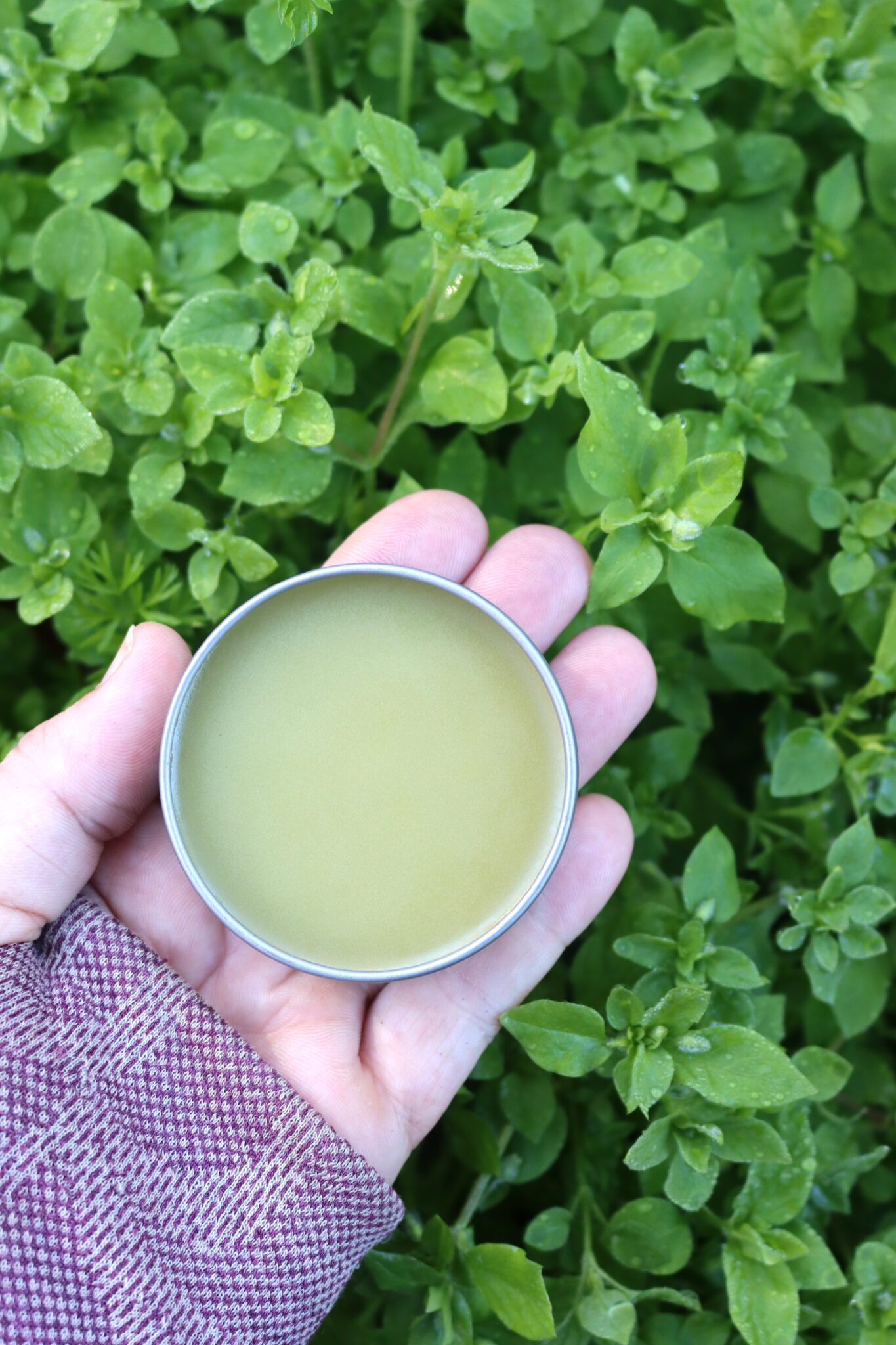
Chickweed Recipes
Chickweed Tea is a mild, vitamin-rich infusion traditionally used to support digestion and soothe inflammation. Chickweed Vinegar is made by steeping fresh chickweed in apple cider vinegar for use as a salad dressing or skin toner.
Chickweed Infused Oil can be applied directly to the skin or used to make chickweed salve, which is often blended with other herbs for soothing rashes or eczema.
For internal use, a chickweed tincture provides a convenient and long-lasting way to take advantage of its cooling, anti-inflammatory properties.
In the kitchen, the fresh wild green makes a flavorful addition to salads or a base for wild greens pesto. It also pairs beautifully with eggs in a spring quiche, or blended into a creamy green hummus alongside other wild spring greens.
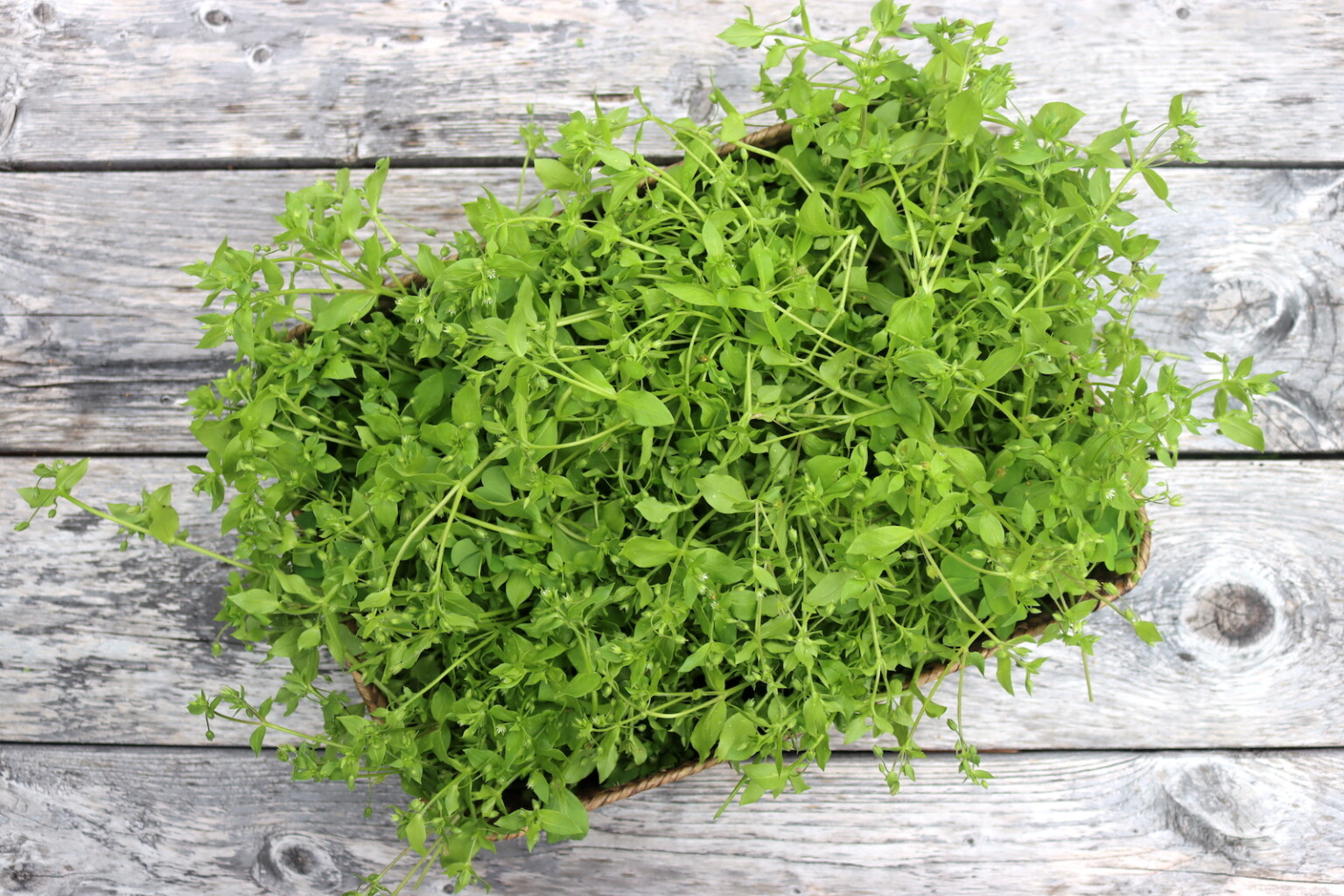
Edible Wild Greens
If you’re harvesting chickweed in early spring, you’ll likely spot other edible wild greens too. Wild Violets and their edible flowers often grow nearby and are just as cold-hardy. Ground ivy (or creeping Charlie) can be used for teas and has mild medicinal qualities. Dandelion greens are another spring staple, offering a slightly bitter but nutrient-dense addition to meals.
Later in the season, keep an eye out for lamb’s quarters, cleavers, and garlic mustard, all of which can be harvested and used much like spinach. These early greens are a welcome sign of spring and offer excellent nutrition after a long winter.
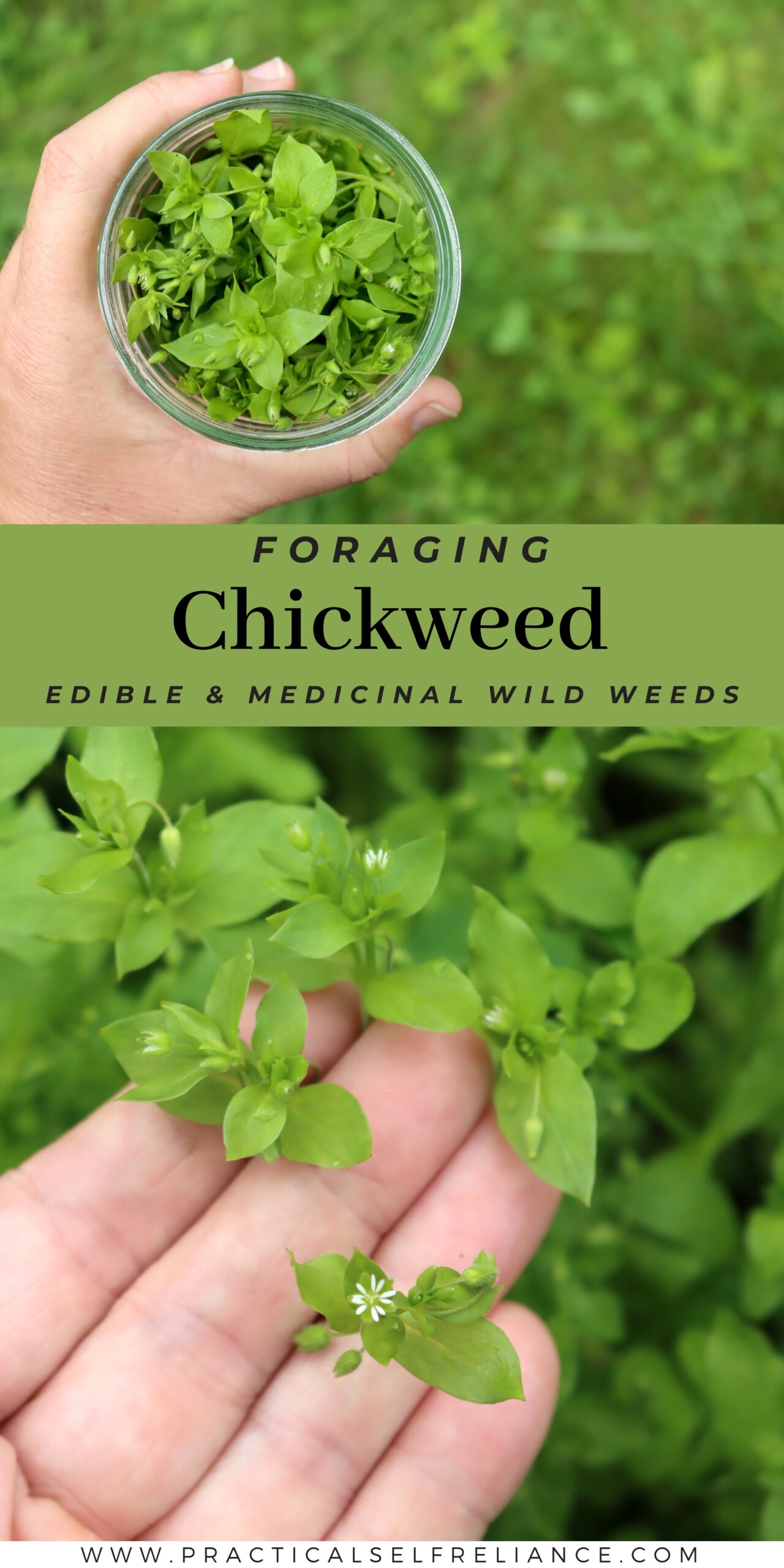
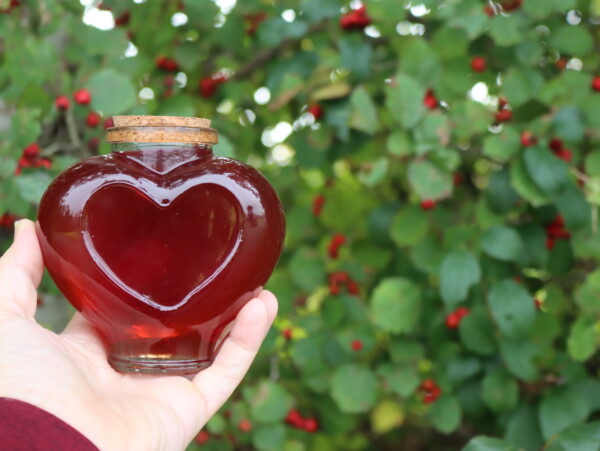
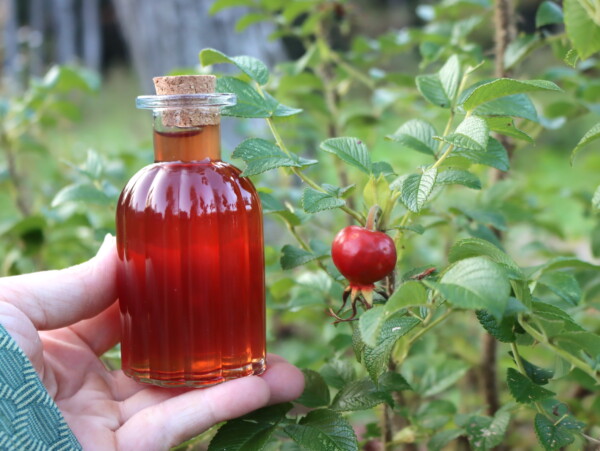
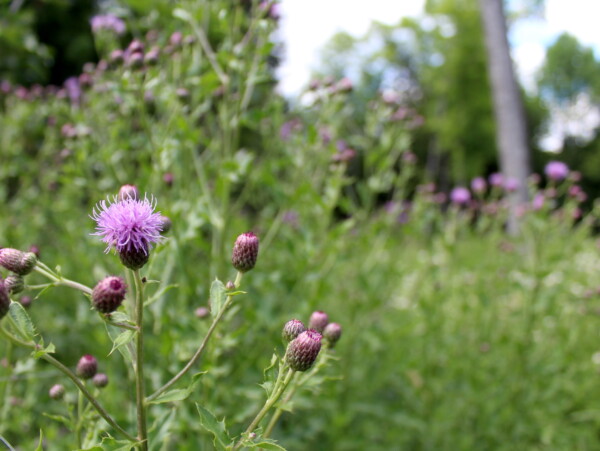
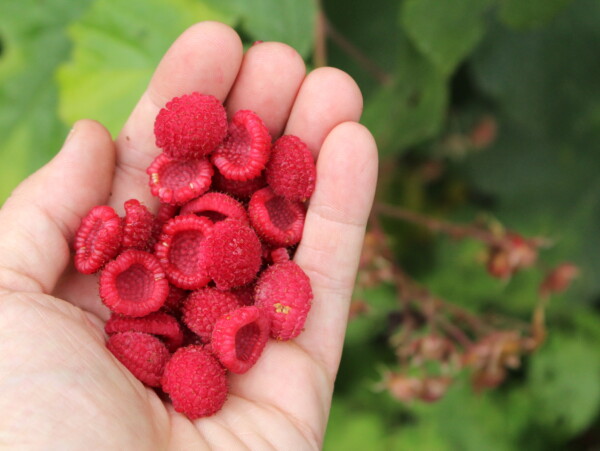










Is it possible to dry it for later use?
Yes, it is possible to dry it depending on what you plan to use it for.
I assume we eat the flowers too?
Yes
Thanks for the feedback of chickweed .
You’re welcome.
Thank you for sharing this information. I gave chickweed to my rabbit every few days and he lived to be 12 years old. I just learned that I could eat it also recently. Our yard is full of this so my family will never starve… lol… Thanks be to God for creating chickweed!!!!!
Yes, chickweed is an amazing little plant.